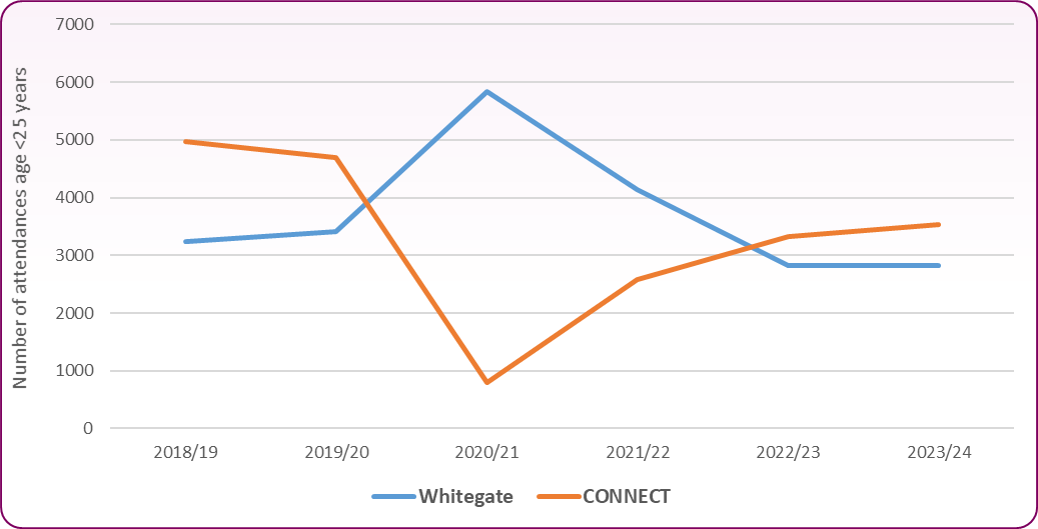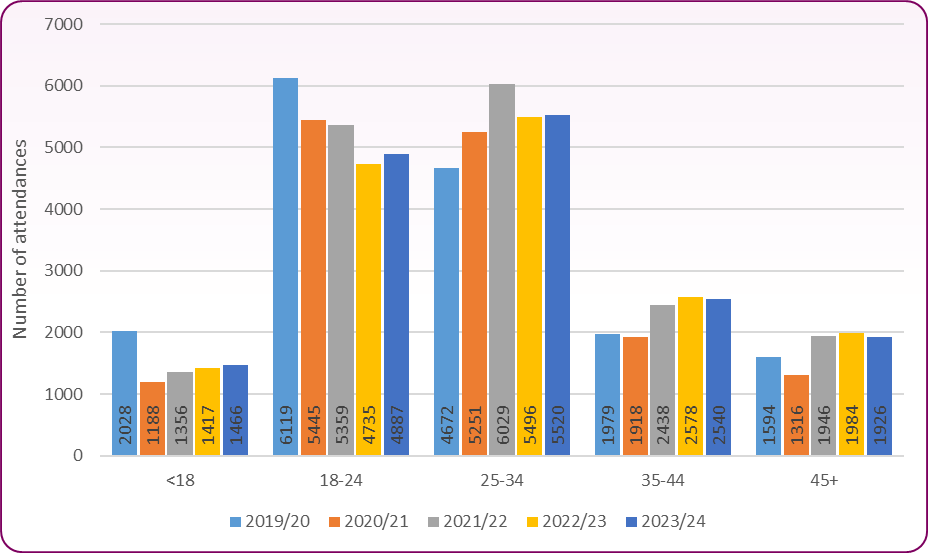Sexual Health and Relationships
Last Modified 13/03/2025 15:53:16
Share this page
Introduction
The Government's Framework for Sexual Health Improvement in England (2013) reported that most people become sexually active and start forming relationships between the ages of 16-24 years.
Regrettably, sexual health can be surrounded by stigma, prejudice and discrimination which makes it difficult to access information and openly discuss issues which affect both individuals and communities.
Young people in this age group have significantly higher rates of poor sexual health, including sexually transmitted infections (STIs) and abortions, than older people. However, sexual health is more than sexually transmitted infections such as HIV or Chlamydia. Sexual health also refers to the emotional and physical aspects of sex, sexuality, sexual activity and relationships.
Sexual Health and Relationships forms part of the wider Blackpool Sexual Health Needs Assessment and further information is found in the Sexual Health section.
Relationships, Sex, and Health Education (RSHE)
The Relationships Education, Relationships and Sex Education and Health Education (England) Regulations 2019, made under sections 34 and 35 of the Children and Social Work Act 2017, make the provision of Relationships Education, Relationships and Sex Education (RSE), and Health Education compulsory in English schools from the 2020/21 academic year. Supported by statutory guidance issued in June 20191, the legislation makes Relationships Education compulsory in all primary schools in England and Relationships and Sex Education compulsory in all secondary schools. It also makes Health Education compulsory in all state-funded schools. Personal, Social, Health and Economic Education (PSHE) remains compulsory for independent schools.
Department for Education (DfE) guidance sets out the general content of RSHE, though schools are free to decide how they embed this content within the curriculum. Content is intended to promote positive physical and mental wellbeing, and includes themes such as families, caring friendships, respectful relationships, issues relating to being online and social media, the law, being safe, and (for secondary school pupils) intimate relationships, sexual relationships and sexual health. All schools must have a up-to-date policy for Relationships Education and RSE and need to ensure that the policy meets the needs of pupils and parents, and reflects the community they serve.
In view of the higher rates of poor sexual health among young people, and the high under 18 conception rate in Blackpool, RSHE should be given high priority in all secondary schools in Blackpool. To support this, a PSHE Support Officer works with schools to develop RSHE provision and give RSHE / PSHE school leads a network of best practice, access to training and a suite of quality assured schemes of work, lesson plans and resources.
Connect
Connect Young People's Centre located in Blackpool town centre offers advice, contraception and sexual health screening to under 25's. Prior to 2016/17, a higher number of young people under 25 attended the 'all age' service at Whitegate Drive rather than the Connect Young People's centre on Talbot Road. Following the recommissioning of sexual health services in 2016, more young people attended Connect than Whitegate Drive (until Covid-19 affected the way services were provided in 2020/21).
Whilst numbers of Sexual and Reproductive Health (SRH) service attendances reduced in 2020/21 because of the pandemic, overall attendances are now back to pre-pandemic level. However the number of young people under 25 years attending SHS is still slightly lower than in 2019/20.
Connect saw a decline in attendance numbers, whilst Whitegate Drive attendances increased during the pandemic but this is gradually changing as numbers using Connect increase once again (Figure 1)
During the 2020/21 Covid-19 period Whitegate Drive acted as a contact hub for Blackpool services, resulting in higher levels of attendances (including contacts for telephone and postal testing requests) across the area. Connect Young People's Service temporarily suspended its service during this period, redirecting young people to the Whitegate Drive hub.
Figure 1: Young people (<25) total attendances at Blackpool sexual health clinics
 Source: Pathway Analytics, Blackpool Council Public Health
Source: Pathway Analytics, Blackpool Council Public Health
Figure 2 demonstrates that the age profile of those attending sexual health services has gradually changed over the last five years. Whereas the number of attendances in people aged over 25 increased between 2019/20 and 2023/2024, the reduction seen in the number of attendances in the under 25 age group is now gradually increasing again. In 2019/20, young people under 25 in Blackpool made up 50% of all attendances at the SRH service, but only 39% of attendances in 2023/24. The proportion of those aged under 18 attending the SRH service reduced in the same period from 12.4% to 9%.
Figure 2: All clinic attendances (by age) - Blackpool residents
 Source: Pathway Analytics, Blackpool Council Public Health
Source: Pathway Analytics, Blackpool Council Public Health
The SHEU survey provides valuable insight into the health behaviours of children and young people and this insight is expected to be used in very practical ways to shape services based on need. Results from the 2024 SHEU survey show that 52% of Year 10 boys and 61% of Year 10 girls say they know how to access contraceptive and sexual health advice locally (results were 67% and 72% respectively in 2022). Forty three percent of pupils said that school lessons were their main source of information about sex (thirty four percent in 2022). PSHE within Blackpool schools aims to improve on this by raising greater awareness, knowledge and understanding.
In 2024:
-
- 7% of Year 10 pupils said that they were currently in a sexual relationship (11% in 2022)
- 12% said that they had had a sexual relationship in the past and 3% said they were currently in a relationship and thinking about having sex
- 86% of pupils said they had used an Internet chat room (87% in 2022)
- 34% of pupils said they had received a chat message that scared them or made them upset (31% in 2022)
- 49% of pupils said they had seen images aimed at adults
- 30% (56% Year 10 boys) of pupils said they had looked online for pornographic or violent images, games or films.
[] Department for Education, Relationships Education, Relationships and Sex Education (SRE) and Health Education: Statutory guidance for governing bodies, proprietors, head teachers, principals, senior leadership teams, teachers. DfE, 2019.